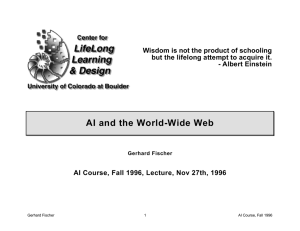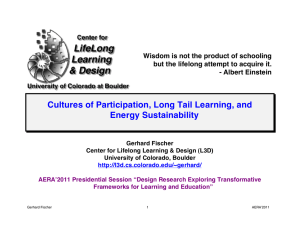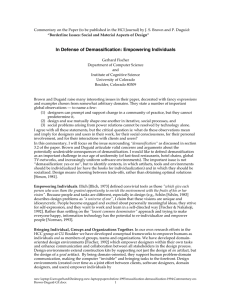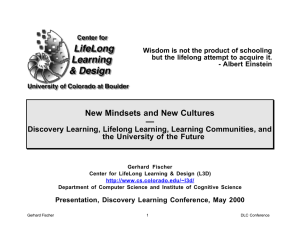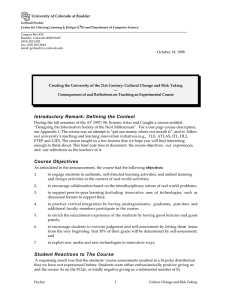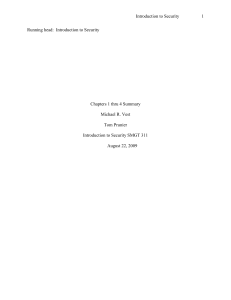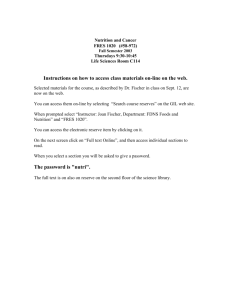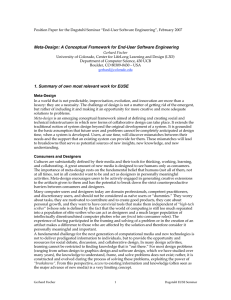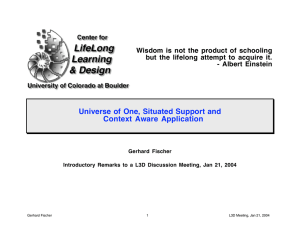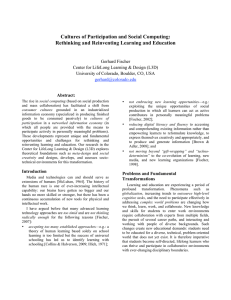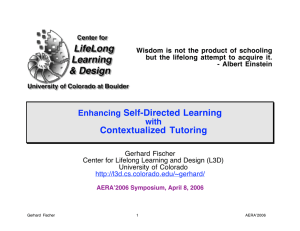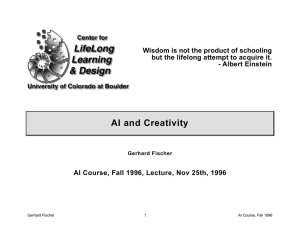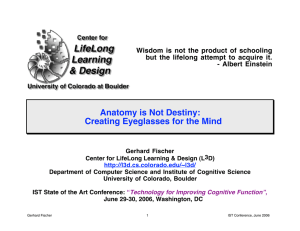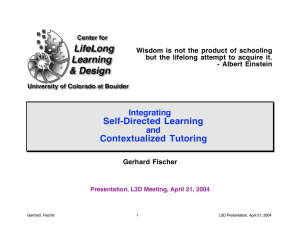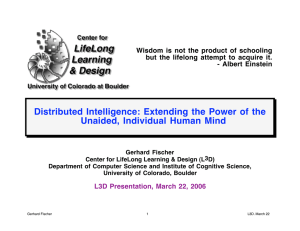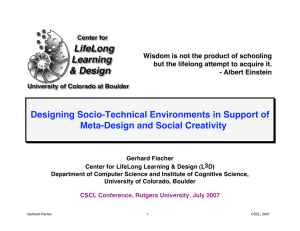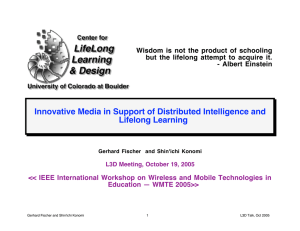Introductory Remarks for the Discussion Session “Cultures of Participation”
advertisement
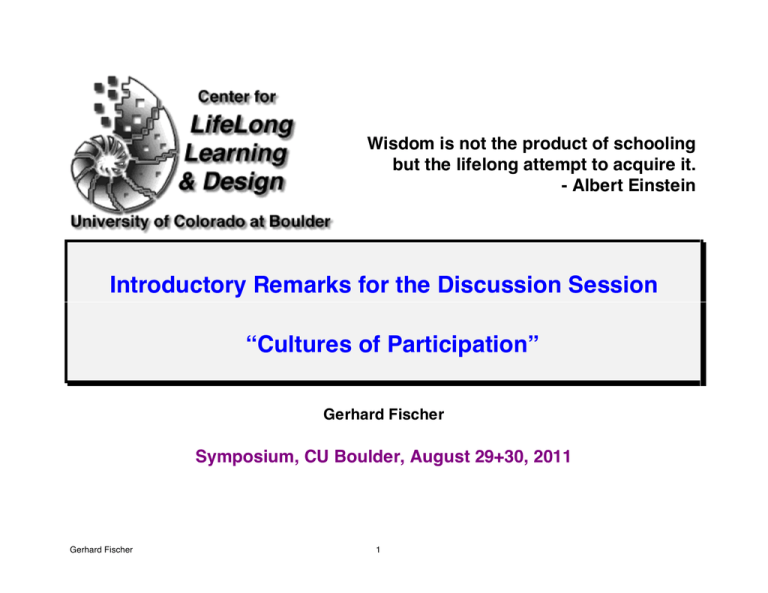
Wisdom is not the product of schooling
but the lifelong attempt to acquire it.
- Albert Einstein
Introductory Remarks for the Discussion Session
“Cultures of Participation”
Gerhard Fischer
Symposium, CU Boulder, August 29+30, 2011
Gerhard Fischer
1
Cultures of Participation
—
Fundamental Challenge and Opportunity
consumer cultures
focus: produce finished goods to be consumed passively
⇓
cultures of participation
focus: provide all people are with the means to participate actively in
personally meaningful problems
Gerhard Fischer
2
Comments about Cultures of Participation
“The experience of having participated in a problem makes a difference to those who are
affected by the solution. People are more likely to like a solution if they have been
involved in its generation; even though it might not make sense otherwise” [Rittel, 1984]
ownership
“The hacker culture and its successes pose by example some fundamental questions
about human motivation, the organization of work, the future of professionalism, and the
shape of the firm” [Raymond & Young, 2001]
intrinsic motivation beyond financial incentives
“Users that innovate can develop exactly what they want, rather than relying on
manufacturers to act as their (often very imperfect) agents” [von Hippel, 2005]
ill-defined problems can not be delegated
“Not only do we like things that we make more than similar things made by others—but
we think other people should value them more as well.” [Ariely, 2010]
IKEA effect
Gerhard Fischer
3
Fundamental Transformation: New Social Realities
public and private media blend together
- Hollywood and YouTube
professional and amateur production blur
- pro-ams
- crisis informatics
voluntary public participation has moved from nonexistent to
fundamental
- cultures of participation
- prosumers
Internet:
- Not stifled by elitist gatekeepers: Model Authoritative Model Democratic
Gerhard Fischer
4
Richer Ecologies of Participation
Level-0:
Unaware
consumers
Transitions
Gerhard Fischer
Level-1:
Consumers aware of
possibilities
Becoming aware of
possibilities
Level-2:
Contributors,
decision makers
Making
contributions
5
Level-3:
Collaborators,
facilitators,
organizers, curators
Organizing
content, mentoring
Level-4:
Meta-Designers
Extending the
range of the
environment
Ecologies in Open Source Communities
Gerhard Fischer
6
A few more possible Topics for Discussion
Problems caused by “Participation Overload”
Difference between Cultures of Participation and Cultures of Collaboration
Participation = f{value, effort}
An example (of changing value and effort): Fun Theory
http://www.youtube.com/watch?v=sf9SaySaQZA
Gerhard Fischer
7
Finding the Right Challenge
—
“From Usable / Useful” “Low Threshold / High Ceiling”
Gerhard Fischer
8
The Envisionment and Discovery Collaboratory
Gerhard Fischer
9
